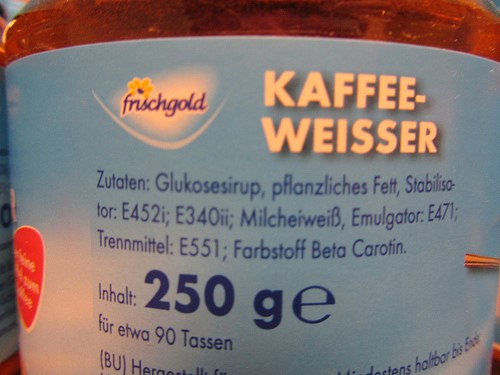Nano silica in foodstuffs could cause gastrointenstinal inflammation - Reduction required

The anti-caking agent silica E551 has been used for many years in the food industry as well as in toothpaste. Hanspeter Nägeli (UZH) and his team demonstrated that silica nanoparticles, which were previously regarded as harmless, may cause inflammation of the gastrointestinal tract.
Background (ongoing research project)
Silicon dioxide E551 ensures that dry food, such as ready-to-eat soups or seasoning powders, remain pourable. The ultra-fine powder is obtained from quartz sand and was previously considered to be safe. In this project, Hanspeter Nägeli's team studied the effects of silica on dendritic cells. These cells are embedded in the mucous membrane of the gastrointestinal tract and are the guardians of the immunological defence of our digestive system. They activate the immune system when disease-generating germs appear, while at the same time ensuring that food components and harmless intestinal bacteria are tolerated by our bodies and do not trigger a defensive reaction. The researchers examined whether the silica nanoparticles interact with dormant dendritic cells and whether they can interfere with the balance between immunological defence and tolerance.
Results
Dendritic cells were obtained from bone marrow stem cells in mice and then exposed to various nanomaterials commonly used in the food industry. The investigations showed that dendritic cells were activated by silicon dioxide nanoparticles and began to excrete an inflammatory-regulating signal molecule (interleukin-1β). This effect of the nanoparticles on the dendritic cells was confirmed by the presence of different markers that are present on the surface of dendritic cells as soon as they are activated. Titanium and iron nanoparticles, which are also used in the food industry, do not trigger activation of the immune cells in the same experiments.
Relevance
As part of this project, an in vitro test was developed, which can be used to analyse the biological activity of nanomaterials in foodstuffs. The results show that synthetic silica nanoparticles can lead to an inflammatory reaction in the intestine. These findings suggest that the concentration of silica nanoparticles in food additives should be reduced. This should be followed up by in-vivo studies and comparisons with human exposure data.
Original title
Food-borne nanomaterials: dysregulation of gut-associated immunity – Development of an in vitro test for risk assessment (Acronym: Food N'Immunity)
Source: NFP64